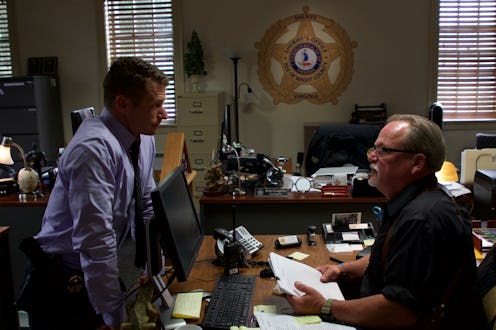Entertainment
This Discovery Channel True Crime Show May Have Helped Solve A 13-Year-Old Mystery

Besides the undeniable fascination associated with the true crime genre, there are far more important reasons for fans to take notice of the myriad of true crime series' that have popped up everywhere lately. In particular, awareness is key when it comes to any cold cases. Sometimes, the exposure of victims' stories to a wide audience can help new evidence or stories to come out of the woodwork and help solve the mystery. The third season of Discovery Channel's docuseries, The Killing Fields, dives into the 2004 murder of Carrie Singer with hopes to bring some answers to the decades-old case. So, what happened to Carrie Singer? The Killing Fields: Murder Isle (EVP, Current Programming & Development for Sirens Media: Lucilla D’Agostino) aims to figure that out.
As with most unsolved cases, it's hard to know exactly what happened to Carrie — and this case has remained unsolved for the last 13 years. What authorities do know about her death, however, tells a tale of a brutal homicide that took place in Virginia during the summer of 2004. Carrie was a 28 year-old woman, whose battered, half-naked body was discovered by a farmer on July 1, in a field just outside of Smithfield, Virginia — according to The Virginian Pilot. The article further reported that it appeared that she had been killed within a day of being found. According to Fox News, her remains sadly exhibited the signs of a particularly brutal beating, which made it impossible to determine whether she had been sexually assaulted by her killer.
According to WTKR News 3, Detective Randy Patrick was the lead investigator, who responded to the scene of Carrie's murder back in 2004, and he will be joining the team from The Killing Fields to attempt to wrap up a case that he considers to be one of the most difficult of his career. Patrick told WTKR, "When I rolled up on scene, that's when I saw the gruesome sights that I saw that have haunted me since 2004." It wasn't just the horrifying manner by which Carrie lost her life that weighed on Patrick, though. As he told Fox News in the previously referenced article, "All homicide cases are extremely difficult to investigate," but he added, "Carrie’s case was even more difficult because her body had been exposed to the elements. Not only was Carrie a victim of whoever savagely beat her and killed her, but Carrie was also a victim of the elements."
According to the WTKR News 3 article, Patrick was actually just about to retire when the sheriff asked him to stay on to try and close Carrie's case. Patrick said, "It didn't take much thought for me to change my mind and say, 'Yeah I need to get this wrapped up before I retire." He's yet to do so, but, in 2018, there is a plethora of advanced technology — particularly in the field of DNA analysis — that allows investigators with The Killing Fields to test evidence like never before.
In fact, as reported by The Virginian Pilot article in October 2017, investigators saw a major break in the case when two DNA profiles that were lifted from Carrie's body, as well as other items present at her crime scene were turned over to Parabon NanoLabs. The lab took those profiles and created a sketch of the man that those particular genes would create. It turned out that, although the investigators were concentrating on mostly white and black males as possible suspects, the DNA evidence pointed to a male of Latino descent.
As of now, no names have been released as suspects, but Patrick revealed in the Fox News article that he and his team were "extremely close" to having some big answers in this case, thanks to the extra case exposure and investigative aid from The Killing Fields. The third season of the docuseries premieres Jan. 4 on Discovery Channel at 8 p.m. ET. Tune in to see if this years-long cold case can finally get solved.